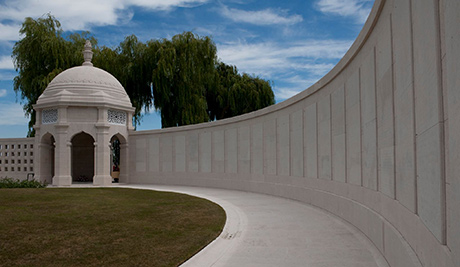In this guest blog, Colonel Geoff Wright, Military Attaché at the British Embassy in Paris, pays tribute to the British and Indian soldiers who died in the battle of Neuve-Chapelle in the North of France.
Written version (continued)
On the 13th of March this year, we will commemorate the 100th anniversary of the First World War Battle of Neuve-Chapelle. I will represent the UK, the British Embassy in Paris and I will be accompanied by my senior diplomatic colleague, Mr. Ananda Guha.
This battle, fought between the 10th and 13th of March 1915 was a major point in the history of the First World War. British forces attempted to break through German lines at Neuve Chapelle in order to capture the village of Aubers.
Indian soldiers among the two divisions that took part formed over half of the attacking force.
They came from the length and breadth of then British India, including the Punjab, Garwahl, the Frontiers, Bengal, Nepal, Madras and Burma.
They represented an enormously diverse religious and linguistic culture. They came from regions that we now recognize outside modern India as countries such as Bangladesh, Burma, Pakistan and Nepal.
The total number of shells fired during this battle was more than those used in the whole of the Boer War. By the time the attacks were called off, the British forces had captured a salient 2,000 yards wide by 1,200 yards deep, along with 1,200 German prisoners. But all this cost over 7,000 British and 4,200 Indian casualties.
At the site of Neuve Chapelle, there now stands a memorial garden, designed by Sir Herbert Baker and unveiled in 1927. Circled by domed pavilions and towering columns, it now forms a permanent reminder of the sacrifice of those who were lost during this battle.
By the time the First World War ended, India had sent more than a million personnel overseas – 138,000 to France alone.
And the contribution was not confined to the army alone: the Royal Indian Marine was armed in 1914, and its ships served alongside the Royal Navy on escort duties, some as minesweepers and including the Mesopotamian campaign.
It will be a great honour to mark that participation, contribution and their sacrifice during the First World War.
Colonel Geoff Wright

